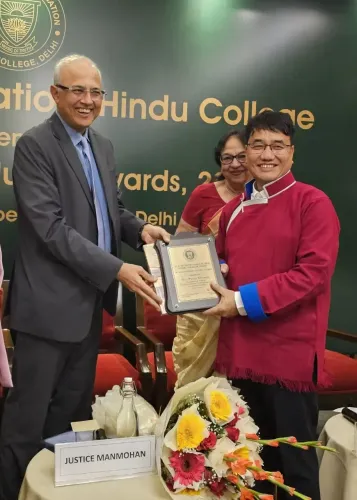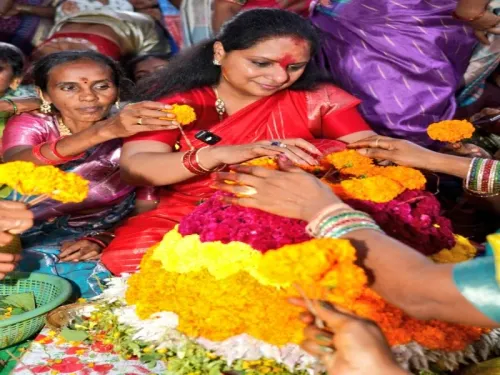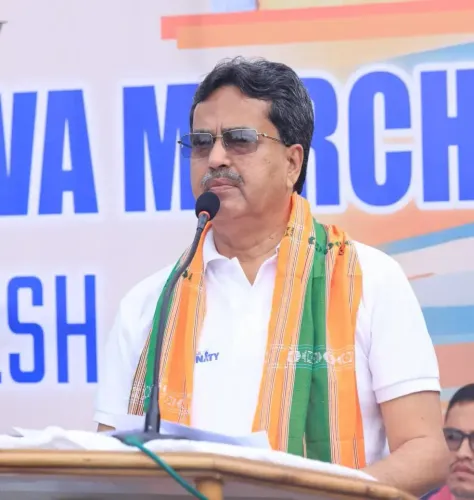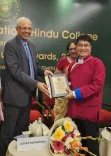Will PMK Leader Anbumani Ramadoss Lead a Coalition in TN by 2026?
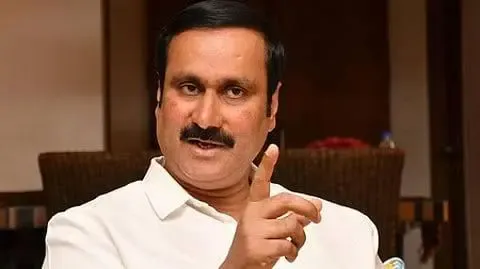
Synopsis
Key Takeaways
- PMK aims to form a coalition government after the 2026 elections.
- Dr. Anbumani Ramadoss emphasizes social justice as a core principle.
- Grassroots mobilization is a key strategy for PMK's election efforts.
- Internal dynamics within PMK could influence its political strategy.
- Historical context of PMK's contributions to OBC reservations highlights its political significance.
Chennai, June 15 (NationPress) The leader of Pattali Makkal Katchi (PMK), Dr. Anbumani Ramadoss, projected optimism on Sunday that a coalition government, including his party as a significant member, will be established in Tamil Nadu following the 2026 Assembly elections.
During a district-level general council meeting held in Tiruvallur, the former Union Health Minister stated that PMK is diligently gearing up for the elections through extensive grassroots outreach and engaging the youth.
"A coalition regime is set to take charge in Tamil Nadu next year, and PMK will be an integral part of that alliance. Our foundation was not to assist either the DMK or the AIADMK in forming governments," Anbumani emphasized, clearly distancing his party from the two major Dravidian parties without explicitly naming them.
He called for a fresh political alternative in Tamil Nadu, asserting that genuine social justice can only be realized when PMK is in governance.
"We, too, should govern. Only then can we guarantee social justice for our citizens. We seek nothing else," he affirmed, reiterating the party's enduring ideological stance.
Recalling historical instances, Anbumani highlighted PMK's role in securing a 27 percent reservation for Other Backward Classes (OBCs) in Central government educational institutions during the UPA-I regime in 2004.
"It was PMK that demanded the inclusion of OBC reservation in the Common Minimum Programme of UPA. However, when its implementation was stalled by two years, our founder, Dr. S. Ramadoss, cautioned that the party would exit the alliance unless the commitment was honored. It was only after this that the promise was fulfilled," he remarked, adding, "This exemplifies coalition politics -- this is what Tamil Nadu requires."
These comments arise amid recent tensions between Anbumani and his father, PMK founder Dr. S. Ramadoss.
The ideological and strategic differences between them surfaced after the 2021 Assembly elections, with reports indicating Ramadoss Sr. was critical of some decisions made by Anbumani regarding alliances and internal leadership reshuffling.
While these differences were not fully aired in public, the younger Ramadoss has recently adopted a more assertive tone, hinting at a shift in the party's political direction.
Despite these internal disputes, Anbumani's address in Tiruvallur seemed focused on unifying the party and preparing its members for an upcoming political challenge.
"We are organizing these district-level meetings to fortify the party structure, reach out to every village, and attract more youth. The groundwork for transformation is in progress," he stated.
As Tamil Nadu's political landscape potentially evolves ahead of 2026, Anbumani's advocacy for coalition governance marks a renewed effort by PMK to position itself as a kingmaker, if not a primary ruling partner, in the state.

